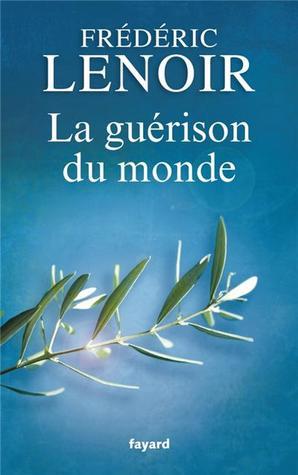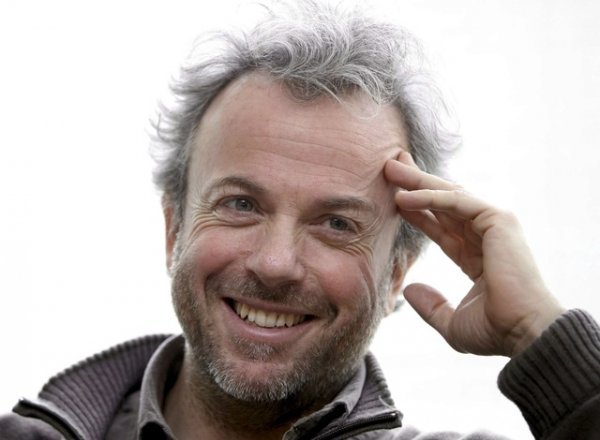
La guérison du monde
2012
First Published
3.59
Average Rating
322
Number of Pages
Ce début de XXIe siècle est traversé par une telle succession de crises – écologique, économique et politique – qu’il voir refleurir le vieux mythe de la fin des temps. Nous nous trouvons confrontés aujourd’hui à au moins dix bouleversements inédits dans notre histoire. Pour trouver une mutation similaire, il faut remonter non pas à la Renaissance, ni à la fin de l’Empire romain, mais au tournant du néolithique, lorsque, il y a plus de dix mille ans, les groupes humains abandonnèrent le mode de vie nomade pour se sédentariser. On assista alors à un changement radical du rapport de l’homme à lui-même et au monde, dont nous sommes les ultimes héritiers. Aujourd’hui, ce n’est pas la fin du monde que nous connaissons, mais la fin d’un monde, celui fondé sur la prééminence du cerveau rationnel et logique par rapport au cerveau émotionnel et intuitif, sur l’exploitation mercantile de la nature, sur la domination du masculin sur le féminin. Frédéric Lenoir montre ici que la guérison est possible. Illustrant les impasses de la fuite en avant (le progrès à tout-va) comme celles du retour en arrière (démondialisation, écologie radicale, intégrismes religieux), il exprime sa conviction que l’humanité peut dépasser cette crise planétaire par une profonde transformation de nos modes de vie et de pensée : rééquilibrage du masculin et du féminin, passage de la logique du « toujours plus » à celle de la « sobriété heureuse », de l’égoïsme à la communion, de l’état de spectateur passif à celui d’acteur responsable… Au-delà des rafistolages provisoires d’une pensée et d’un système à bout de souffle, une immense révolution est en marche : celle de la conscience humaine.
Avg Rating
3.59
Number of Ratings
85
5 STARS
16%
4 STARS
38%
3 STARS
34%
2 STARS
12%
1 STARS
0%
goodreads
Author

Frédéric Lenoir
Author · 32 books
3 June 1962. Birth in Madagascar.
- His parents return to France and move to the country to raise their four children, born in Morocco and Madagascar. 1970-1979. He moves to Paris. An unruly student, he is particularly ill-disposed to doing schoolwork and is sent to three different lycées (Victor Duruy, Buffon, Camille Sée). As a teenager he reads Hesse and Dostoyevsky, kindling his interest in existential questions. At 15 he develops a passion for philosophy after reading Plato’s Dialogues, and in astrology from reading books by André Barbault. 1980-1985. The Swiss psychologist Carl Gustav Jung has a profound effect on his intellectual direction, triggering a desire to study mankind’s great myths and religions. After an early fascination with Asian spirituality, in particular Tibetan Buddhism, discovered through the work of Chogyam Trungpa, he develops an interest in the Kabbalah and begins taking classes in the symbolism of Hebrew letters. He has no particular interest in studying Christianity, however. His Catholic upbringing, although very liberal, had focused too much on dogma and morality. Then, at 19, he reads the Gospels for the first time, and is amazed by them. He begins studying philosophy at the University of Fribourg, in Switzerland, with his childhood friend Emmanuel Rouvillois, who later becomes a monk by the name of Brother Samuel; there, he meets two crucial and outstanding professors: the Dominican philosopher Marie-Dominique Philippe (with whom he writes a book of interviews, Les trois sagesses, in 1994) and the philosopher and Talmud scholar Emmanuel Lévinas who, as a testament, leaves him a fine text on ethics in his book Le Temps de la responsabilité (1991). Parallel to his philosophy studies, he goes on a personal spiritual quest that leads him to spend several months in Israel and India, as well as in Christian hermitages and monasteries in France.
- As editor of the religion department at Editions Fayard, he publishes several books examining philosophical and spiritual themes.
- He resigns from his position as editor to devote more time to academic research and writing, and begins work on a doctoral thesis on Buddhism in the West at the Ecole des Hautes Etudes en Sciences Sociales.
- Passionate about ecological issues, he helps found the association ‘‘Environnement sans frontières.’’ In 2003 he publishes a book of interviews with his friend Hubert Reeves, who sounds the alarm on the risks threatening the planet. (Mal de Terre).
- He is appointed associate researcher at the Ecole des Hautes Etudes en Sciences Sociales (EHESS). Following in the footsteps of Edgar Morin, one of his intellectual mentors, he takes on the issue of religion in a multi-disciplinary approach combining philosophy, sociology and history.
- He writes l’Encyclopédie des religions, conceived and compiled with Ysé Tardan-Masquelier, (2500 pages, 2 volumes, 150 collaborators). 1996-2000. He writes for L’Express on a regular basis.
- He writes and directs an international study about sects for television with Lolande Cadrin-Rossignol. The documentary series, entitled ‘‘Sectes, mensonges et idéaux’’ (‘‘Sects, Lies and Ideals’’), is broadcast in France on the Cinquième channel and in numerous other countries. He also co-writes a documentary about the Dalai Lama that is broadcast on Canal +, and a series of three 52’ episodes on the Cinquième channel entitled ‘‘Dieu a changé d’adresse’’ (‘’God has changed his address’’). 1998-2005. He writes a number of books − some alone, others with Catherine David and Jean-Philippe de Tonnac − of interviews with such diverse figures as Abbé Pierre, Umberto Eco, Stephen Jay Gould, Jean Vanier, Hubert Reeves and Jean-Claude Carrière.